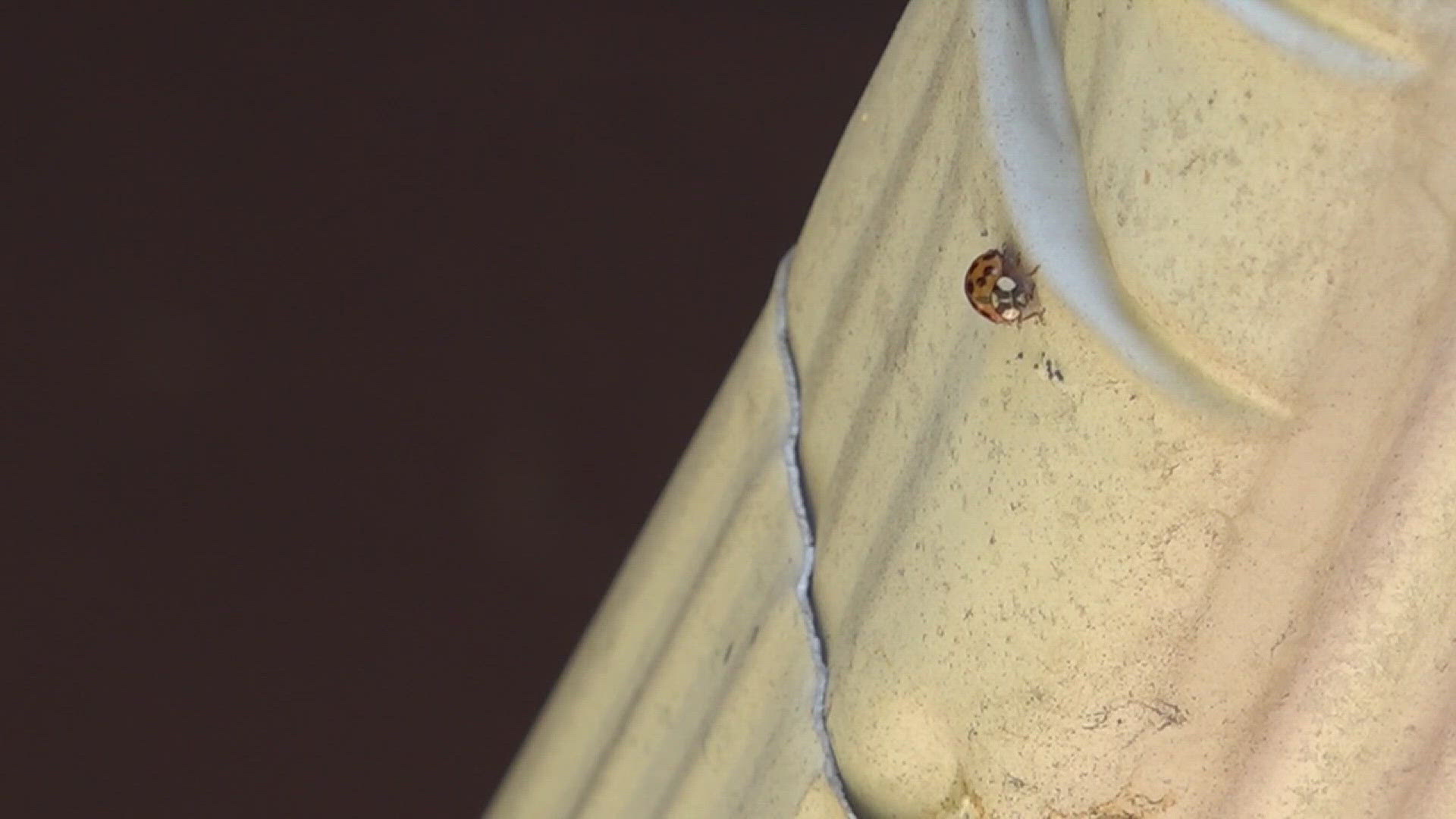MICHIGAN, USA — Small, orange-red beetles are taking over homes all across West Michigan. No, they aren’t native ladybugs. They're Asian Lady Beetles.
It’s hard to see the difference between native ladybugs and invasive Asian Lady Beetles according to Erin Biggs, a forest entomologist with the Michigan Department of Natural Resources - Forest Resources Division.
“They have a lot of the same functions ecologically, but we really notice the Asian Lady Beetle this time of the year.”
Biggs said they did not evolve the same way native ladybugs did. They can be a bit more voracious when feeding on plant pests, which can be a good thing. However, they do compete with native ladybugs.
Around this time of year, Biggs said the bugs gravitate towards reflective windows or house siding that gets a lot of sunlight. Or they find refuge in a warm house during cold Michigan falls and winters.
But the bug is here to stay.
“There's no way to get rid of them permanently,” Biggs said. “Unfortunately, it's going to be just one of those things that you'll have to manage, you know, for your home every season, just like all of the other critters and insects that we have to deal with.”
Unlike native ladybugs, the Asian Lady Beetle can “bite.” Biggs said they use their mandibles to pinch the skin, which can sometimes be felt and break skin. Unlike a bee sting, it is more of a pinch. They do this when they catch prey, so Biggs assures it is not a personal attack.
Also unlike native ladybugs, they create a foul smell. Through a process called reflexive bleeding, they release liquid through their joints that is yellow in color and smells bad. This response is triggered by danger or surprise.
“That's attractive to other beetles of the same species, and they will congregate to those points and just continue releasing that smell to attract more,” Biggs said. “And it's, if you've ever smelled it before, you'd recognize it for sure.”
They’re able to squeeze through small cracks and Biggs recommends sealing up your house so they don’t get in. And to avoid the release of the liquid, Biggs said to use a vacuum to suck them up and dispose of them outside of the house.

